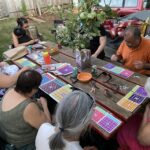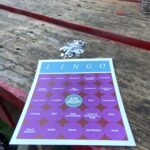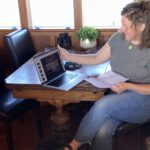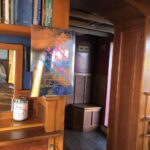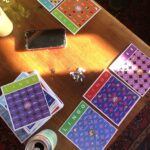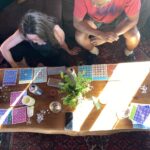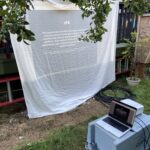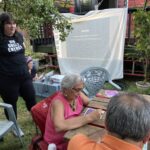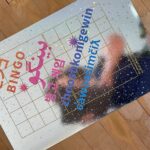The Blockchain Study Group brought together six artist-researchers to explore blockchain technology in 2021 and 2022.
When this project started in the Summer of 2021, blockchain technology was becoming mainstream, partly due to the cryptocurrency market bull run that began in 2020. Celebrities were tweeting about “crypto” and discussions about non-fungible tokens amongst artists were getting heated in a way that other debates related to art techniques and cultural practices that are bad for the environment were not. Amongst developers in the blockchain space, there was a kind of breathless optimism and confidence, fueled by money – lots of money – and a notion that a new paradigm was emerging. Accompanying the proposals for new paradigms seemed to be the underlying presumption that those at the forefront of the technology would be founding fathers (sic) of a new world order. One year later the members of the Blockchain Study Group agree: blockchain is just a technology, one tool in the toolbox. It has its uses, and also, it is a location for critical discourse.
We are a group of six individuals who identify as women, nonbinary, and gender diverse and each holds a constellation of identities. We all reside in North America and embody this variously — First Nations on the continent as well as those who have recently arrived. It is a lot to pack into six people. Convened in the late-days of a global pandemic, our connection was facilitated through virtual video meetings (Zoom) and asynchronous communication using email, Google Docs, and Telegram. We consulted Twitter and Discord to follow larger discourses. We drew on the documented knowledge of podcasts, published texts, and frequently Googled unfamiliar terms and concepts; we took online courses; we attended conferences; we had discussions with fluent family members. Guest speakers were invited to help us see additional views of the big picture and to ground our learning in the specifics of individuals and invite thinking from communities beyond our own networks. There was a series of sessions where we collectively decoded crypto-access by working through the opaque process of safely setting up a series of crypto wallets and connecting to an exchange. We pulled together diverse threads and then sought to find pattern and connection among these. Over the course of a year we engaged in exploration, debate, and sense making — individually and as a group. Collaborating during a period of limited travel for many, in the shadow of a global pandemic, presented unforeseen challenges and opportunities. While we have yet to all be in the same room in-person, we found connection and fostered open exchange through shared ideas, displays of vulnerability, and humor. Grateful to have this set of six minds, we also found a shared willingness to play. The spirit of play is what brought us to Bingo games as an educational tool and a rhetorical style that combined functional definitions with tongue-in-cheek(iness) reflecting the views we brought to the conversation. We share a bit of what made us laugh along the way to help others find access points in this often impenetrable space where the language and the ideas are often shrouded in opaque code. Perhaps this is appropriate for a community born out of cryptology.
Our documentation is a snapshot of a moment in time. A moment in time where the future of blockchain technology can feel cemented in a centralized dominant discourse of heteropatriarchal colonial control and detail, and other times seems like a fragile and creative space full of possibility and new approaches for an emergent world. While we cannot see (nor predict) the future of a crypto economy or the full potential of blockchain technology, we can offer observations and argument for greater inclusivity in every possible form. In order for the stated ideals made conceivable, if not yet possible, by blockchain technology to reach the potential proposed, it is critical that effort is made to reach more people who are located in more spaces. This cannot be a conversation dominated by cisgender men who come from a legacy of wealth and privilege. Evoking a new global economy is not worth the effort if it will not benefit more people, in particular those who have existed on the margins under colonialization and capitalist structures designed to keep a finger on the proverbial scale. Our work has demonstrated that when given space and charged with a different mission than making money, the view of what is possible looks distinct and varied from what exists on Twitter and makes headlines in the media. We adopted a different lens and that opened up our thinking in ways that led to innovation / creativity / good design / beauty / trust.

